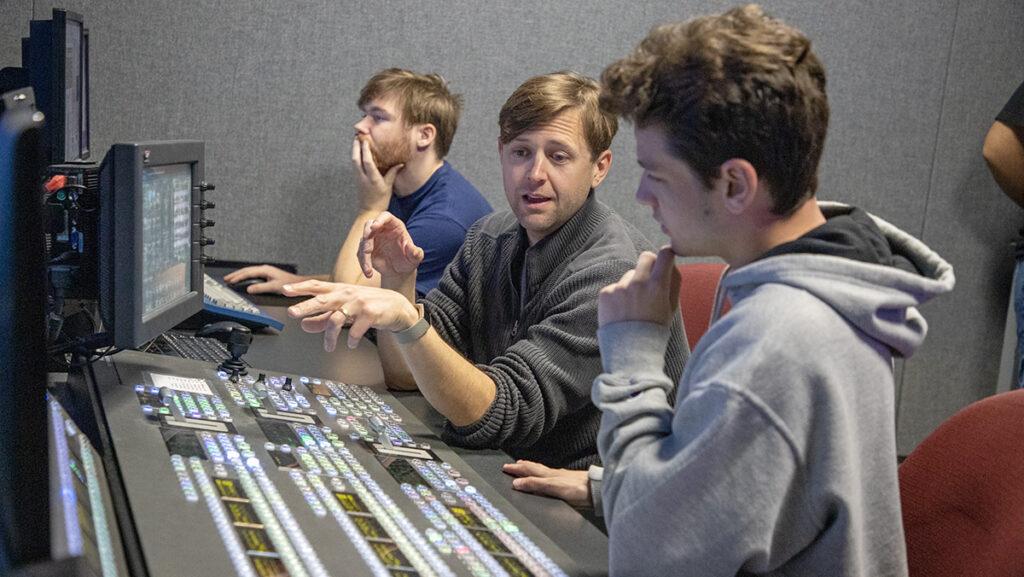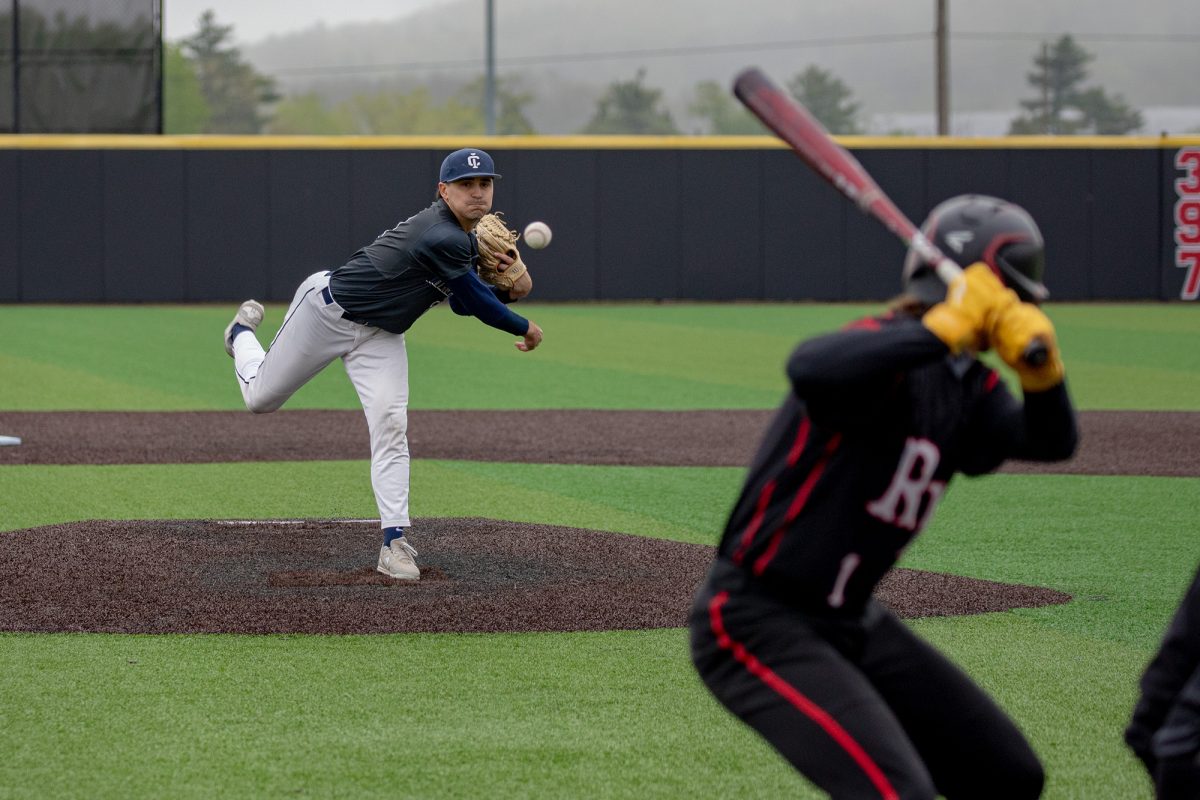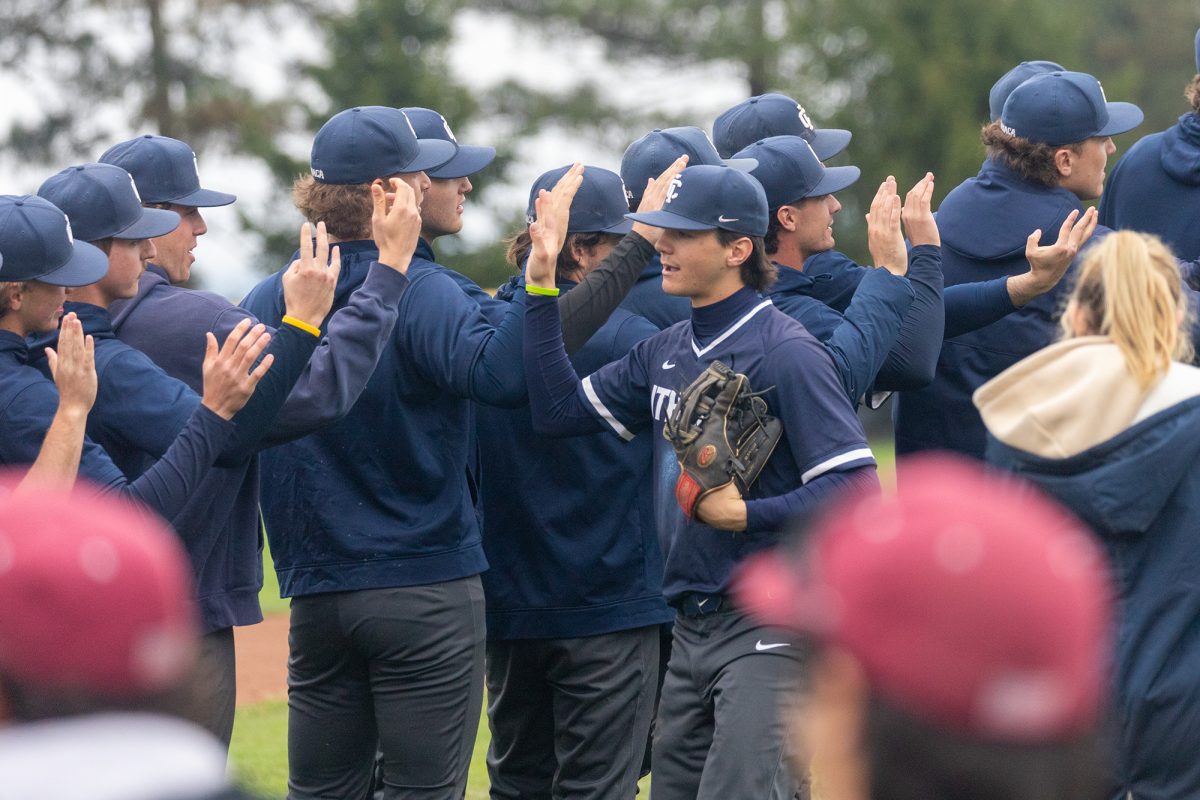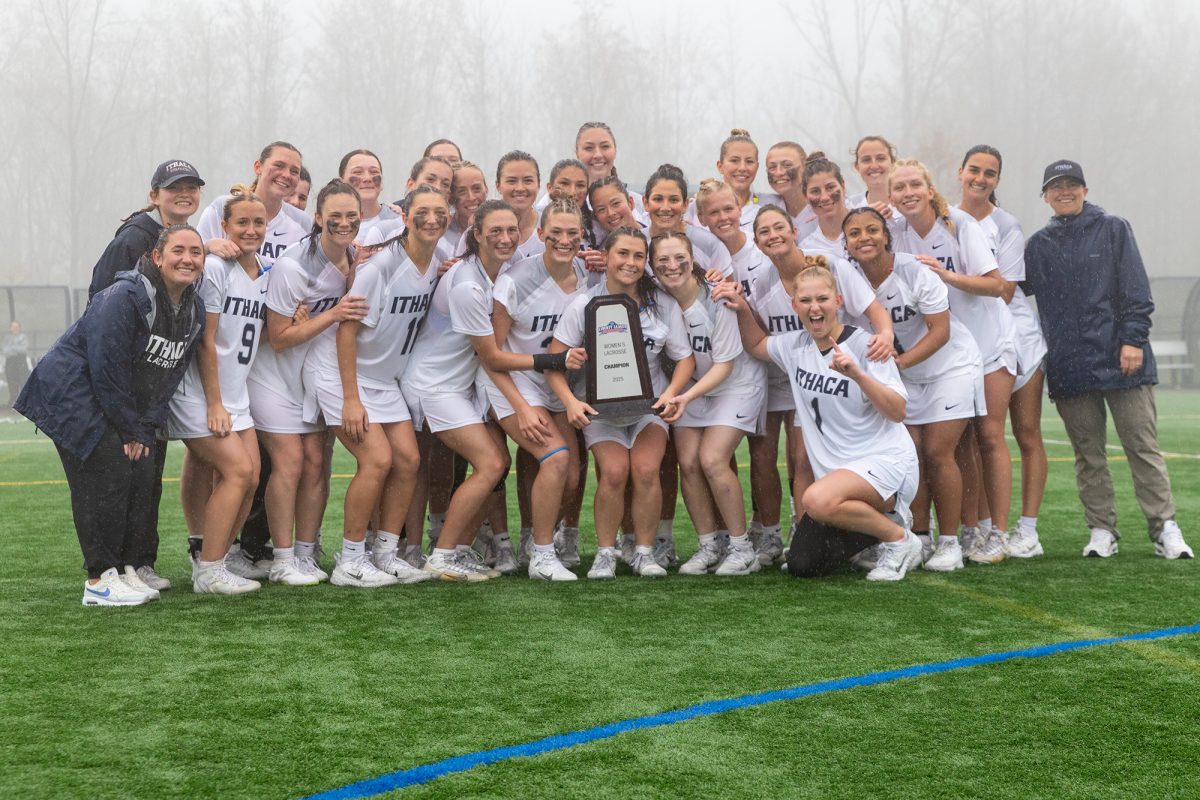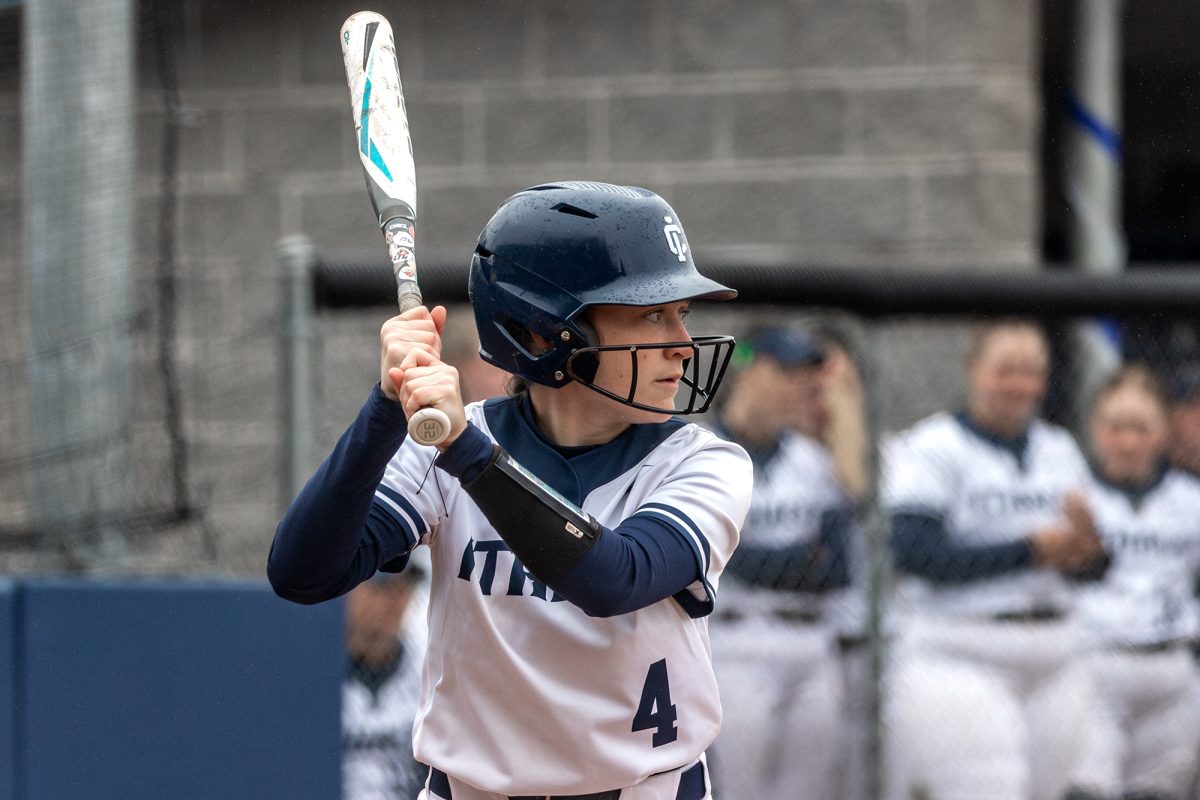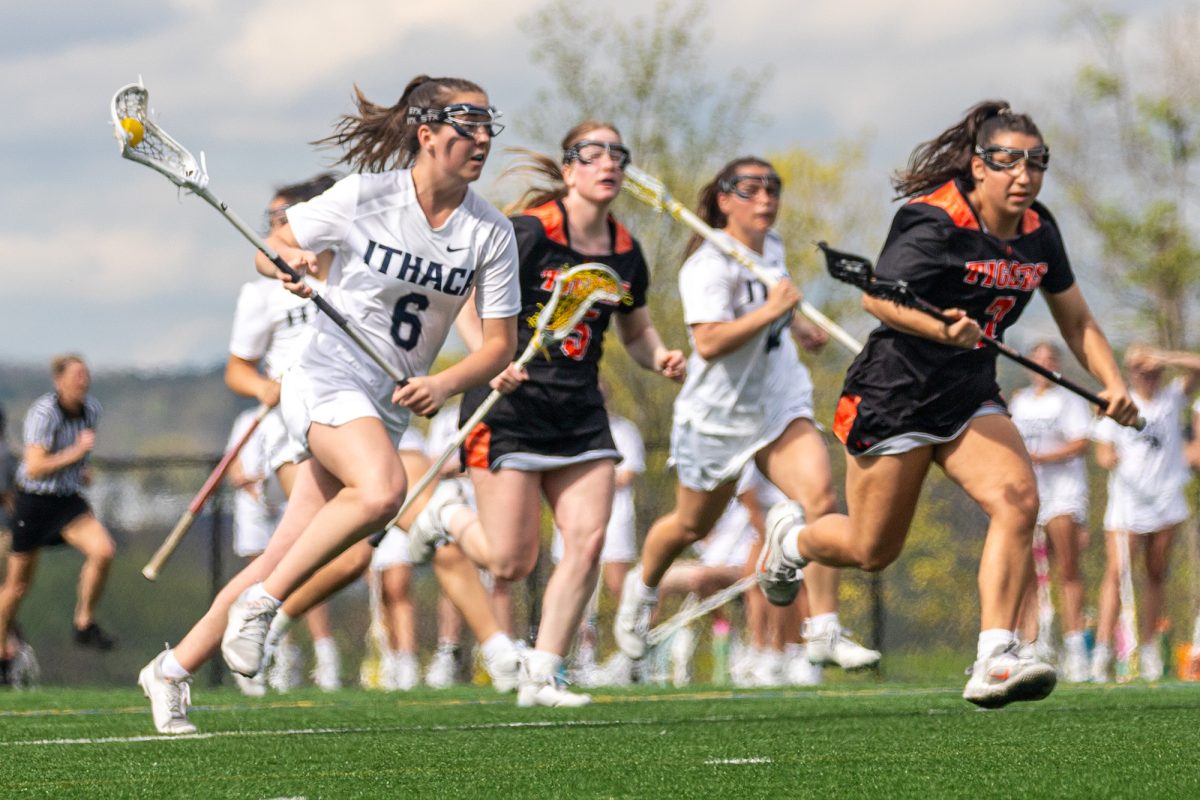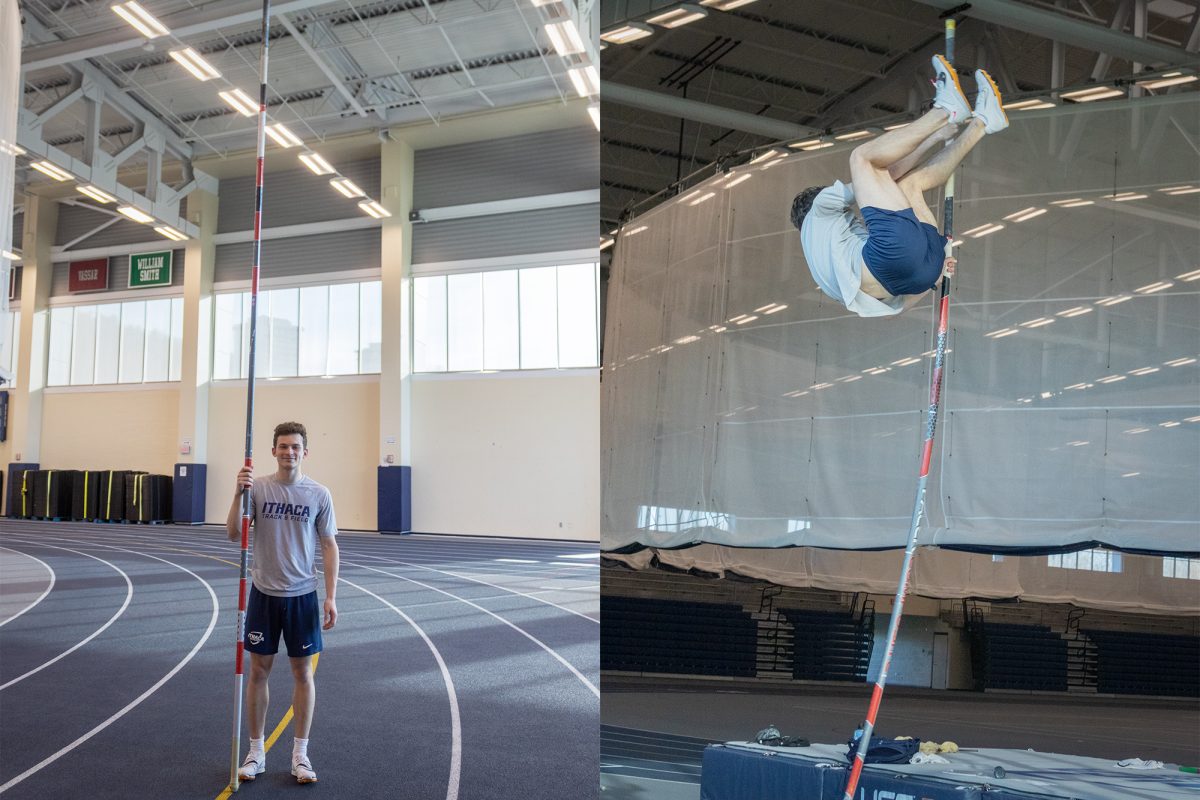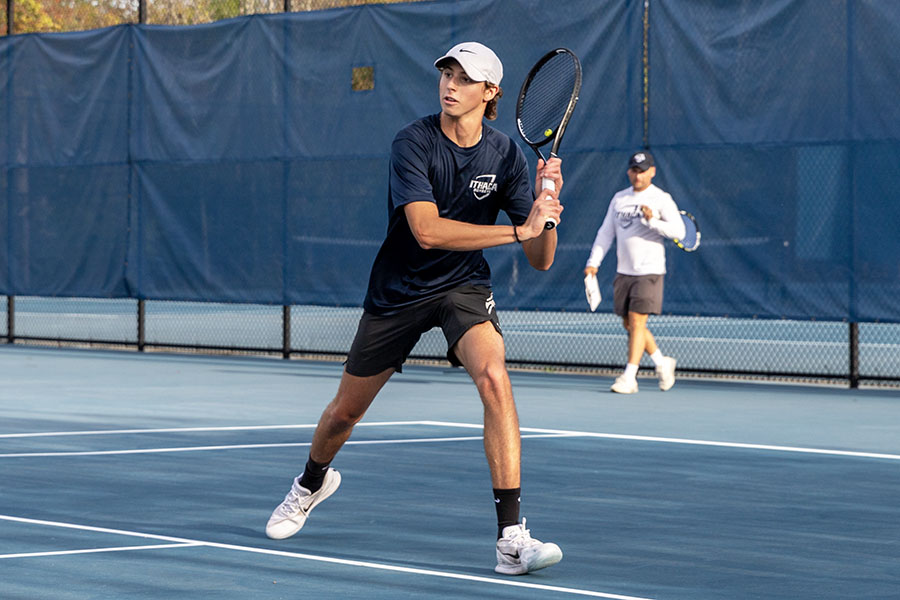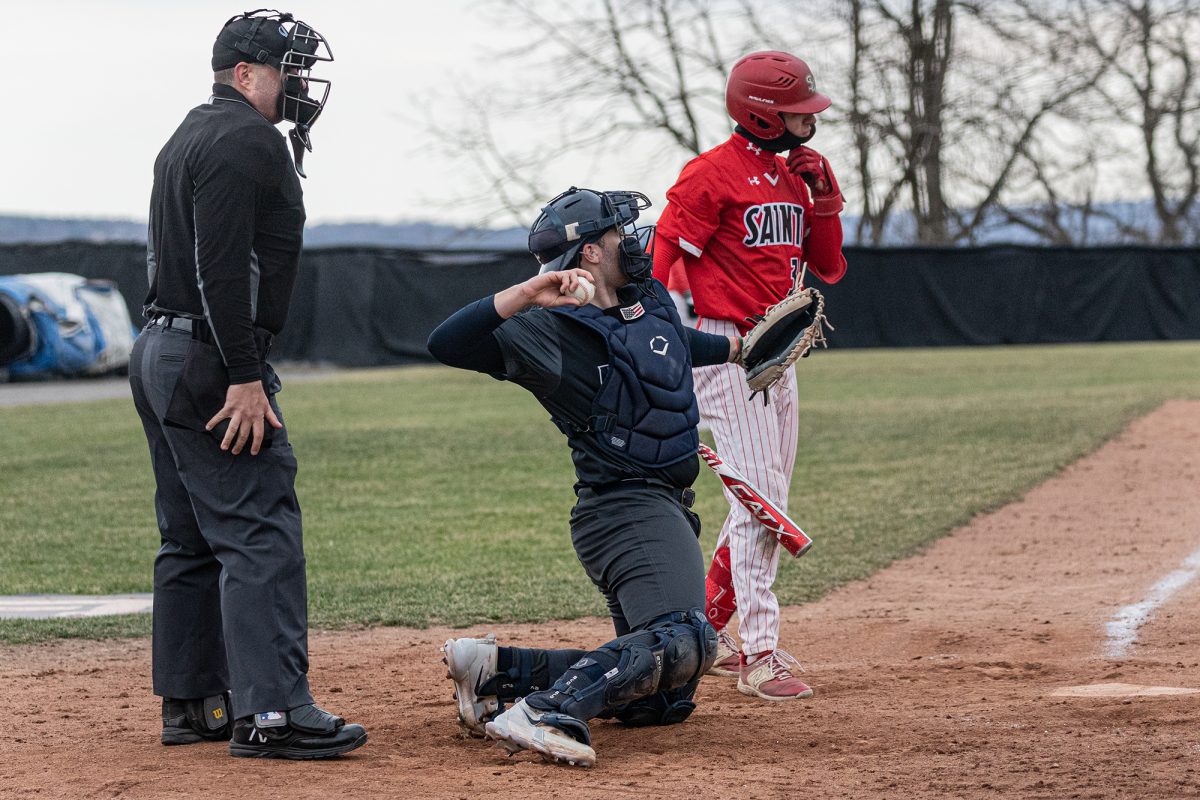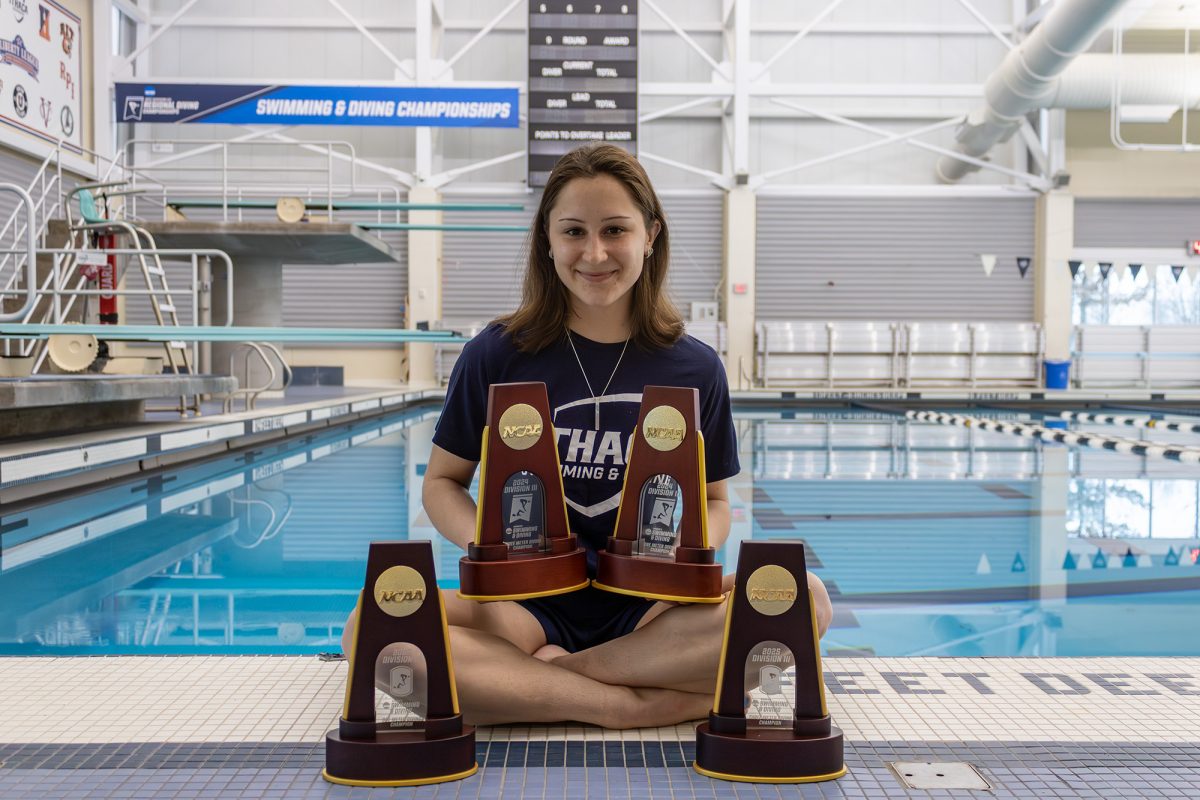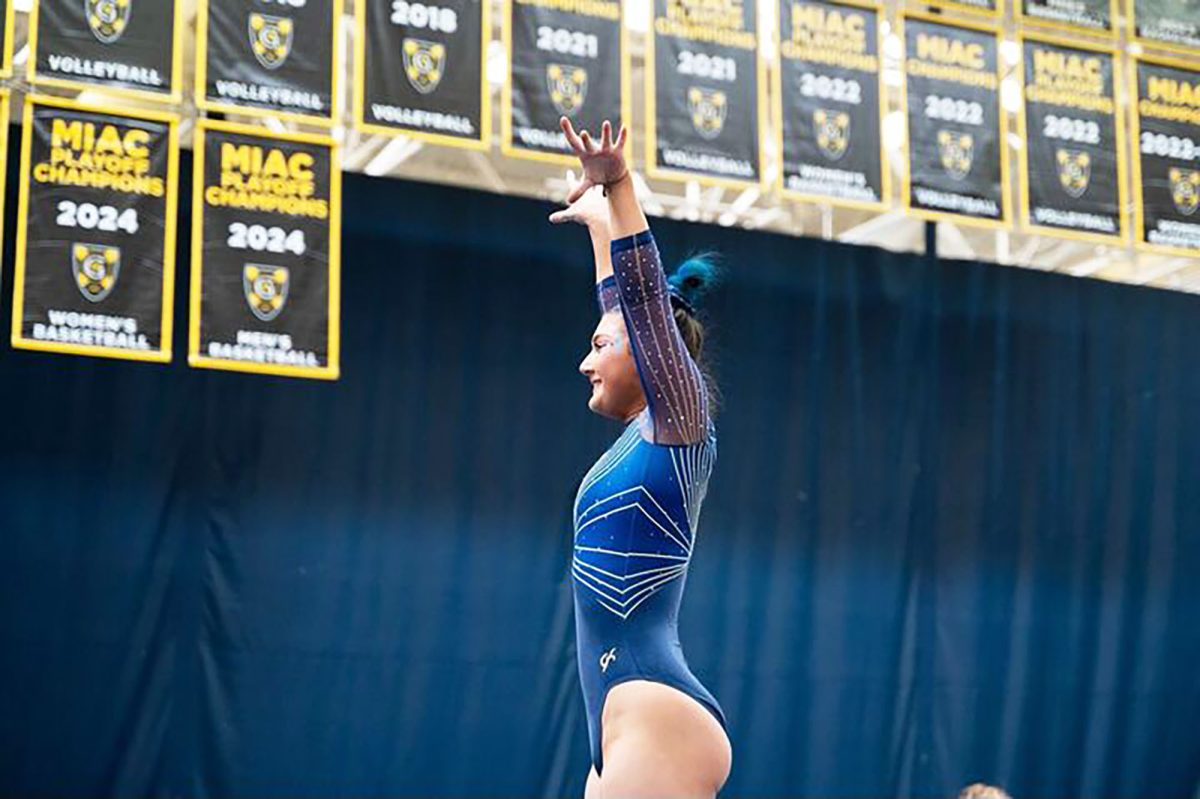While many of the courses offered in Ithaca College’s Roy H. Park School of Communications are traditional media courses, there is a new course that has made its debut in a much more niche subject.
Esports Content Production — taught by Alex Estabrook, instructor in the Department of Media Arts, Sciences and Studies — has finally established itself as a first of its kind course in the Park School. Estabrook said his gaming knowledge played a valuable role in what led him to teach the course as well as some insight as to what it brings to the table.
“I have been a video game fan for a long time,” Estabrook said. “I was watching video games, watching my friends play games before the internet became what it is now. I’ve always kind of seen the value in content for gaming. It isn’t just for the people playing, there is a lot of entertainment in and around gaming.”
Estabrook said the growing popularity of esports was important when putting the course together. Although there is an esports club, which sports a handful of competitive teams, there was little else for students to get involved with.
“There wasn’t much of a presence here,” Estabrook said. “I was looking around and the gaming clubs and esports clubs have come and gone. It’s all been student-driven. There needed to be a presence for content creators that want to focus on gaming, and as a fan, I thought that it was super important.”
Estabrook also said his experience at his previous job at ESPN, where he worked 10 years as a content editor and highlight producer, had an influence in his decision to teach an esports-related course at the college.
“In my previous job, the higher-ups would come to me with video game questions and ideas and we would incorporate video games in a lot of the stuff that we did for live airing on ESPN,” Estabrook said. “I have friends who came up in the gaming space and connections to gaming. I’ve had such a blast doing this and the students certainly have too. I have found new ways to teach and new things to learn. It was just an untapped avenue here that was a no-brainer when I started to look at it.”
Estabrook said he brought the idea for the course up to Mead Loop, professor in the Department of Journalism and sport media program director. Estabrook said they talked about adding the course to the sports media curriculum along with the challenges prior to getting the esports course up and running, such as finding the space to be able to teach the course.
Estabrook said he had been planning this course for some time and even had the syllabus planned, but he could not find the space in his schedule — which already consists of about 14 credits per semester — to teach it.
“I think what Professor Loop did was start building [esports] into his curriculum because it’s important that he understood that and knew that I was someone who could speak on it, so he brought me in to discuss that,” Estabrook said. “They were able to clear the way for me to teach this and carve out enough space.”
With the debut of the course has come enjoyment from the full roster of 15 students taking it. Senior Harrison Cona said the only reason he had space for the class in the first place was because he needed an extra course when he was making his schedule, but found it to be interesting once he looked into the description.
“[The class is] all of the fun of studio production but while getting to do something I’m interested in, which would be video games and esports instead of having to focus on soccer or football or news or weather,” Cona said. “This is an actual class that is something I engage with every single day that I can now put to work with my professional skills.”
On top of that, Cona said the content production side involved in esports makes it so unique and different from working in television.
“The production side is really cool because you’re working with so many more components that need to go right technically,” Cona said. “There are a lot of different aspects that really take an extra level of finesse because there’s just a few more things that are plugged in.”
Another participant in the class, sophomore Alex Tchiprout, said Estabrook has been doing a great job with the class so far, which has involved bringing in guest speakers to talk to the class.
“I think he’s done a great job of preparing us for potentially going into the industry by not only showing us all the different sides of production and the different ways in which we can get involved but also giving us connections to real life people who are currently in the esports industry,” Tchiprout said.
Tchiprout said the class is flexible, which makes sense for something like esports. While many other sports are rigid in their production guidelines, esports has no required playing area, fewer restrictions on camera angles and more that makes it easier to produce, even for people with little experience.
“The class isn’t just stationary, it’s very mobile,” Tchiprout said. “It could be a very low-scale budget production and it could still be entertaining for a viewer to watch. You don’t have to have massive production trucks or a specific studio. You can set it up in your room just on a livestream camera or web camera and still be able to stream live to thousands of people.”
Although Cona did not originally plan to take the class, he said he thinks esports coverage is going to be an essential part of sports content production and broadcasting going forward.
“I’d say esports is the future of sports,” Cona said. “Given the huge growth of esports in the last 30 years, I would recommend this class to anyone that is interested in broadcast or gaming.”


